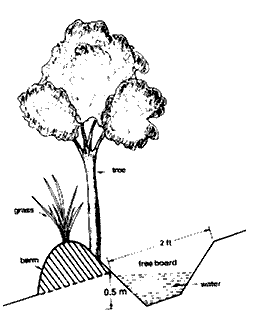 These techniques are useful to slow runoff and erosion from sloping land, and also to revegetate degraded areas. Areas with high rainfall, steep slopes, and thin soils should use slightly graded bunds / terraces / trenches to allow some drainage.
These techniques are useful to slow runoff and erosion from sloping land, and also to revegetate degraded areas. Areas with high rainfall, steep slopes, and thin soils should use slightly graded bunds / terraces / trenches to allow some drainage.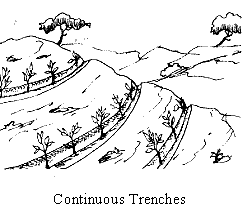 Contour Trenches
Contour Trenches
Above an 8% slope, contour trenches are useful. These are trenches dug in a trapezoid shape with a top width of 0.6 meters, and a bottom width of 0.4 meters, and a depth of 0.4 meters. The soil removed is used to create a berm just downhill from the trench. Trees and grasses can be planted on the berm and inside the trenches. The trenches should be dug perpendicular to the slope (along the contours). They can either be continuous or staggered, such than they are 2 meters long, with 2 meter gaps between every section, and two meters between every row. Note: in hilly areas, this method has been shown to decrease runoff by 80%.
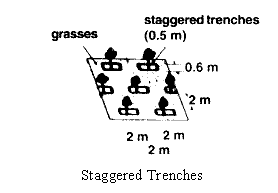
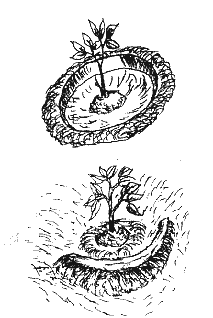 Catch Pits or Crescent Pits
Catch Pits or Crescent Pits
A similar concept can be applied by planting trees within full pits, or crescent shaped bunds across the slope.
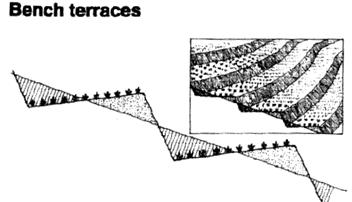 Bench Terraces
Bench Terraces
On steep slopes (between 16.7% and 33.3%) where the soil is deep enough (more than 75 cm deep), the land can be formed into terraces. It is only worth forming terraces if they can be at least 2 meters wide, otherwise farming becomes difficult. In areas of high rainfall (more than 1000mm annually), it may be necessary to provide some drainage off of the terraces – although such a drainage system should be developed with care when on very steep slopes to mimize erosion. The terraces will have to be slightly graded for the drainage to work. The drainage channels should be trapezoidal in shape and planted with grass to prevent erosion.
Terrace drainage system
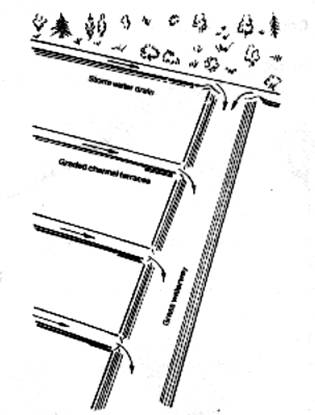
Contour Stone Walls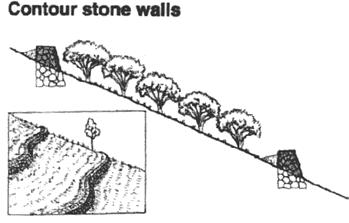
Where stone is available, and if the soil is too shallow for creating bunds or terraces, stone walls can be built across the contours to slow the movement of soil and water down the slope.